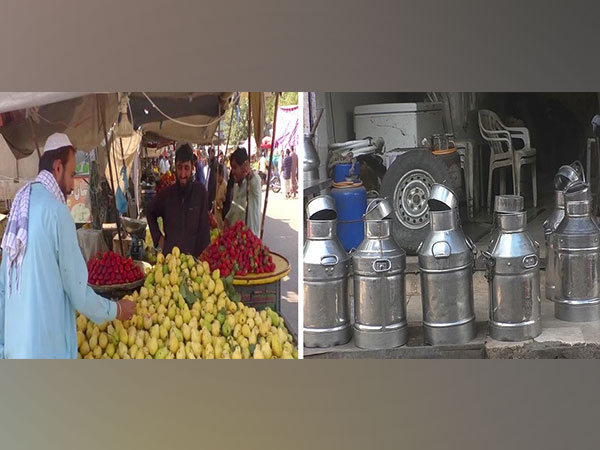Pakistan's public continues to struggle as rampant inflation goes unchecked
As the purchasing power of the common citizens in Pakistan dwindles, people are now struggling to afford items of daily needs. They are facing the challenges of skyrocketing inflation and severe unemployment.

- Country:
- Pakistan
Pakistan on Monday announced the annual inflation rate inflation of 23.41 per cent for the financial year 2023-24, three per cent lower than the targeted rate of 21 per cent. Experts believe that this rampant and continuous rise in the inflation rate is due to a rise in the prices of electricity, gas, and essential kitchen items, The Dawn, a Pakistani daily reported. Quoting the data released by the Pakistan Bureau of Statistics, the Dawn report mentioned that the monthly average of inflation had fluctuated during the entire year. The inflation remained at 28.3 per cent during July and reached its peak at around 31 per cent during September last year.
Previously, the inflation based on the Sensitive Price Index (SPI) had witnessed its fourth consecutive weekly increase, primarily attributed to a surge in vegetable prices, according to official data released, another report by Dawn stated. For the week ending June 20, year-on-year SPI-based inflation escalated sharply by 23.78 per cent. The weekly comparison showed a 0.94 per cent rise. The Finance Bill 2024 proposes a range of indirect taxes that are anticipated to escalate inflation in the coming weeks. Notably, an 18 per cent sales tax is projected to impact prices of pharmaceuticals, books, stationery, and poultry products, as reported by Dawn.
Despite a decline in petrol prices, the impact on essential commodities is expected to be offset by rising prices of perishable vegetables such as tomatoes, onions, and potatoes. The imposition of increased sales tax and customs duties on fresh vegetables and fruits imported from Iran and Afghanistan is likely to further fuel food inflation in the near term. As the purchasing power of the common citizens in Pakistan dwindles, people are now struggling to afford items of daily needs. They are facing the challenges of skyrocketing inflation and severe unemployment.
Rashid, a resident of Karachi said, "We cannot afford meat anymore. We are not able to buy grains, lentils, rice, fruits and vegetables for our families in what we earn today. Even flour is expensive. We wonder what is left for us to eat?" "The poor are left with no option. So, they are committing crimes to survive. Everything comes back to extremely high prices of essential commodities. The meat that we consume today is highly-priced and also vaccinated with taste and weight enhancers which is leading to health problems. The only option left with us is to request the government, to think less about themselves and to think about us more," he added.
Another resident of Karachi, Nazeer Ahmed also highlighted the economic crisis in the country and urged the government to take proper measures to curb the staggering inflation rate. "Meat is a part of our daily diet in Pakistan, but a normal worker-class individual cannot afford it anymore. The government must think about this and make things affordable to the general public by fixing the price of the commodity. I believe that the best way to stop inflation is to stop the price rise of petrol immediately and this will trickle down by reducing the price of every necessary commodity," he said. (ANI)
(This story has not been edited by Devdiscourse staff and is auto-generated from a syndicated feed.)
ALSO READ
Bridging the Job Gap: India's Unemployment Crisis Amid Economic Growth
U.S. Unemployment Claims Drop as Housing Construction Stagnates, Fed Rate Cuts Eyed
Modi's Policy Crossroads: Balancing Food Inflation and Farmer Unrest
India's Food Inflation Crisis: Unpacking the Supply Side Factors
Jairam Ramesh Slams Modi Government Over Unemployment and Price Rise










